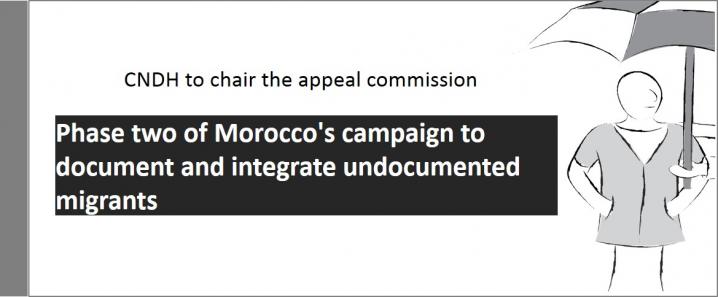Phase two of Morocco's campaign to document and integrate undocumented migrants

Following His Majesty King Mohammed VI’s instructions to immediately launch phase two of Morocco’s campaign to document and integrate undocumented migrants, the National Commission for the Regularization and Integration of Migrants met today December 14, 2016 at the Ministry of Interior.
The National Commission thus adopted the modalities to launch and implement this second phase of integration following a humane and human rights-based approach that aims to protect the rights of vulnerable groups.
In order to optimize the process of this campaign and document as many migrants as possible, a follow-up and appeal commission will be set up to review applications rejected by the prefectural and provincial commissions. The commission will be chaired by the National Human Rights Council (CNDH).
Phase two of this national campaign will build on the success and fruits of the first campaign, launched in 2014. The same reasonable and equitable eligibility criteria will be adopted to document as many migrants as possible, in an implementation of the same solidarity-based and inclusive migration policy.
The new campaign will target:
- Foreign spouses of Moroccan nationals;
- Foreign spouses of other foreigners who are legal residents in Morocco;
- Children of the above two cases;
- Foreigners with valid employment contracts;
- Foreigners with at least 5 years of continuous residence in Morocco;
- Foreigners with chronic illnesses.
Migration offices will therefore be open in every province and prefecture, starting from Thursday December 15, 2016, to receive applications. All necessary human and logistical resources will be mobilized to ensure the success of this campaign.
The prefectural and provincial commissions that will handle applications will include representatives of local authorities and civil society associations, following a participatory approach.






















